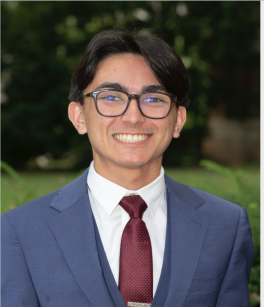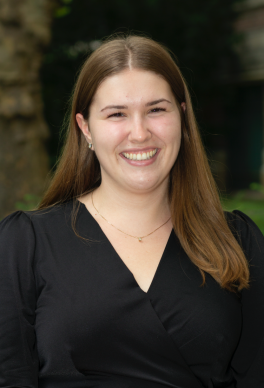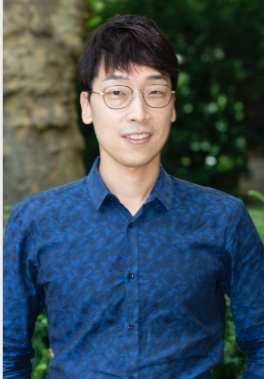A few of our new graduate students answered questions about who they are, what they are interested in studying while completing their PhD, and why they chose Ohio State. We look forward to having them in the Department and seeing all the great work they accomplish!

Ben Falcón
Where Ben calls home: Corpus Christi, Texas
Before coming to Ohio State: I received my A.A. in Liberal Arts from Del Mar College (with honors) and earned my B.A. in Political Science and History with a minor in Chinese from Trinity University (with honors) in San Antonio, Texas.
What drew Ben to Ohio State: Of all the programs I looked at and received offers from, OSU appeared to be the best suited at shaping me into the type of social scientist and researcher I want to become. Bear's work with the MESO lab reflects the methodological pluralism and ambitious thinking I hope to utilize in my own work.
Ben’s subfield and research interests: I hope to specialize in international relations and political methodology. My research interests focus on the nexus between international and regional orders with particular emphasis on hierarchies, rising powers, and great power competition. With a regional focus on Central and South Asia, I seek to study the effects of the rise of China and the intensification of US-China competition on the international and regional order.

Katie Gouge
Where Katie calls home: Johnson City, Tennessee
Before coming to Ohio State: For undergrad, I got a political science degree from the University of Tennessee, Knoxville. I got my master's degree in Public Administration at East Tennessee State University.
What drew Katie to Ohio State: The faculty in American Politics was the main appeal for me attending OSU's PhD program. But, I also wanted to go to a program that wasn't too far from home located in a city that I thought would be a fun environment to live in.
Katie’s subfield and research interests: I am interested in political psychology/behavior of Americans. I am interested in studying the relationship between conservative religious groups and behavior in the US.

Young-Gwan (Young) Yoon
Where Young calls home: I was born in Seoul, and I graduated from all the schools in Seoul. So I am a native-born Seoulite.
Before coming to Ohio State: Prior to joining OSU, I earned my master’s degree from Seoul National University. During my master’s program, I focused on legislative-executive relations. Inspired by the strategic delay of presidential nominations and institutional developments of the nominations process, I analyzed in my master’s thesis the dominant factors in the National Assembly’s confirmation of senior officials appointed by the president. At the end, I found empirical support for the claim that the level of partisan conflict within the National Assembly matters. My latest research, which extends the abovementioned dissertation project using newly released data, was published in Korean Political Science Review.
What drew Young to Ohio State: I'm interested in American Politics and Political Methodology. Specifically, my research interests primarily concern American political institutions with a particular emphasis on the U.S. presidency, Congress, bureaucracy, and the interaction of all three. Given the program’s rigorous methodological training and its faculty’s notable record in the field of American politics, I strongly believe that the Ohio State University’s Political Science Ph.D. program is an ideal place for my research. In addition, I really like “Midwestern friendliness” and Ohio State Buckeyes football.
Young’s research interests: Is there a “science” behind the everyday operations of the checks and balances system such as confirmation hearings, congressional oversight, and executive orders? As a Ph.D. student, I hope to investigate the hidden dynamics that govern the interactions among American political institutions, with a particular emphasis on the legislative-executive relations. Specifically, I aspire to empirically examine the strategic delay in the executive nominations process, the use of presidential signing statements, and the growth of bureaucratic institutions in the contemporary periods.
